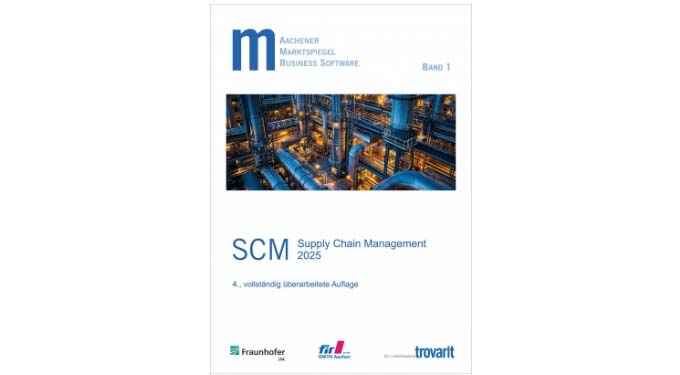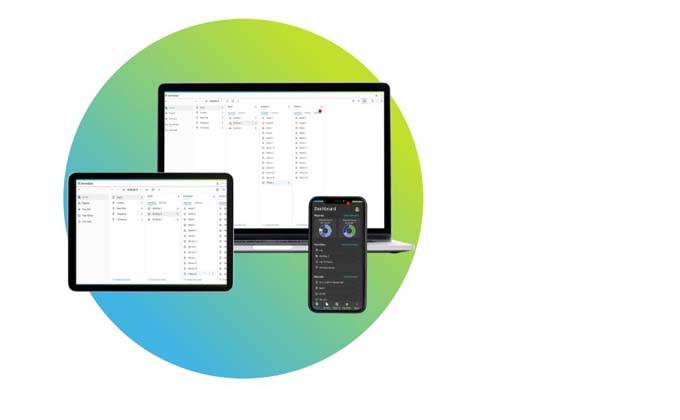MES market overview compares over 140 manufacturing solutions
The manufacturing industry has undergone rapid change in recent years. More and more companies are relying on the digitalization and automation of their manufacturing processes in order to remain competitive and increase their efficiency. So-called Manufacturing Execution Systems (MES), which serve as a central control system for production, play an important role here. Here, companies have recently been increasingly focusing on integration with other technologies such as IoT, AI and cloud computing in order to further automate and optimize their production.

How integration-capable are the MES solutions currently offered on the market? The "Aachener Marktspiegel Business Software - MES/Production Control 2023/2024" will be published just in time for the Hannover Messe (April 17-21, 2023). It is published by the Trovarit Competence Center MES in cooperation with the long-standing partner Fraunhofer Institute for Manufacturing Engineering and Automation IPA and the VDI and examines the range of MES currently available on the German market. It therefore provides an ideal market overview for MES prospects and users. In addition, the MESs examined are evaluated with regard to their support in production management and concrete assistance is given for the implementation of an MES selection project. From mid-April it will be available at https://www.trovarit.com/studien/marktspiegel/mes-fertigungssteuerung/ available.
What do MES systems do?
Fast production with good quality is the goal of every company. To achieve this, however, it is necessary for the company to make optimum use of the resources it requires for the production process. For example, the availability of personnel and operating resources at a given time to handle an incoming order can be of decisive, pro-competitive importance. After all, fixed deadlines can only be met to the customer's satisfaction if production progress, quality and resource availability are known at all times. An MES system is able to map the current factory situation. This means that with the help of such a system it is also possible, for example, to react more quickly to changing conditions such as personnel or machine failures. In this way, a malfunction can possibly be bridged in time and the resulting deadline pressure can be minimized. In this way, an MES system provides information that enables the optimization of production processes - from the creation of the order to the finished product.
But not every MES system is equipped with the same functions. Some providers also like to deliver holistic and comprehensive products, while others focus on individual areas, such as data acquisition or specific industries. Furthermore, the interaction with existing ERP systems also plays a decisive role here. If the two systems do not work hand in hand, conflicts can result that ultimately reduce competitiveness instead of increasing it.
Market overview takes a close look at over 140 MES solutions from more than 120 vendors
In order to enable the comparison of different MES solutions and to increase market transparency, the Fraunhofer Institute for Manufacturing Engineering and Automation IPA, Stuttgart, together with the VDI and Trovarit AG, offers an up-to-date overview of MES solutions available on the market with the "Aachener Marktspiegel Business Software MES 2023/2024". The software solutions are examined comprehensively with regard to their range of functions. Evaluations regarding technical features (e.g. supported server databases, clients, standardized interfaces, etc.) of the systems as well as general information on the MES providers (locations, staffing levels, services offered, etc.) complete the picture. A chapter also deals with the significance of MES for "Industry 4.0".









